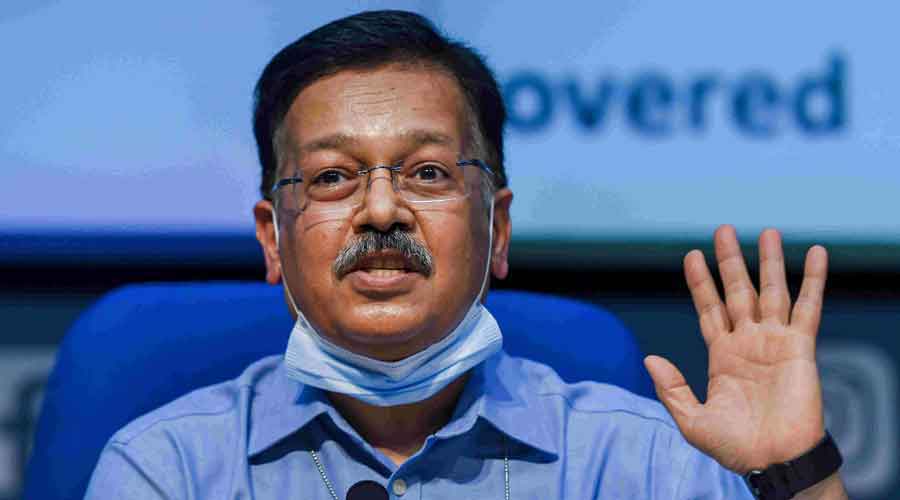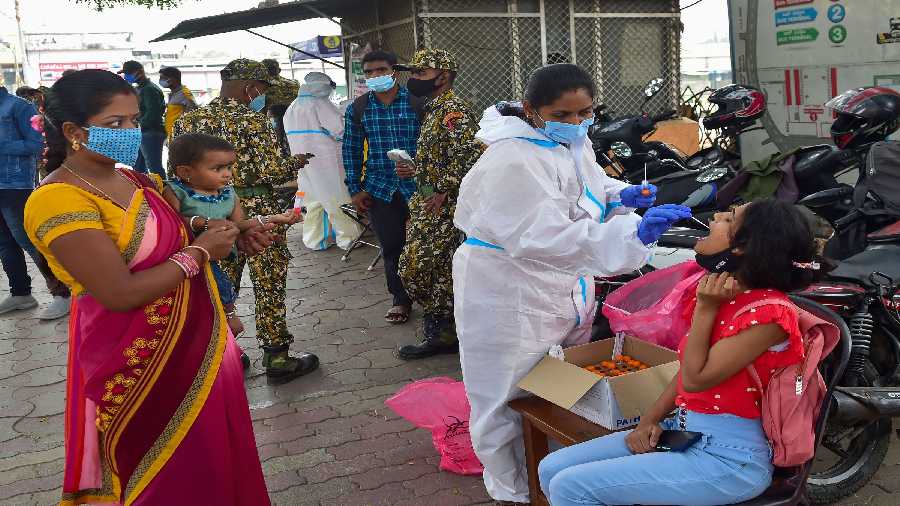The Union health ministry has asked the states to continue sending Covid-positive samples for sequencing and look out for clusters of infections amid the abated epidemic and the resumption of economic and social activities.
All the states should focus on “aggressive and sustained genome sequencing and intensified surveillance”, health secretary Rajesh Bhushan said in a note to all the states, citing the current resurgence of Covid-19 cases in parts of Southeast Asia and Europe.
“Effective surveillance by monitoring of emerging clusters of new cases, if any, (and) testing and monitoring of influenza-like illness and severe acute respiratory illness cases (should) be taken up on a continuous basis to ensure that no early warning signals are missed and the spread of infection can be controlled,” Bhushan wrote.
The health ministry on Friday reported 2,528 new Covid-19 cases after a near steady decline since the omicron-driven surge had peaked with over 347,000 daily new cases on January 20 this year. The count of active Covid-19 patients nationwide on Friday was 29,181, the lowest since early May 2020.
Bhushan has also asked the states to send adequate numbers of Covid-positive samples to the Indian National SARS-CoV-2 Genomics Sequencing Consortium (Insacog), a network of 28 labs across the country, to maintain surveillance of the circulating coronavirus variants.
The National Centre for Disease Control had last year asked each state to send 300 samples every month for sequencing.
The states have also been asked to create awareness and ensure adherence to “Covid-appropriate behaviour” such as wearing masks and maintaining physical distance in all public areas and gatherings and “not let the guard down while resuming economic and social activities”.
Experts believe India’s population is now largely protected from severe Covid-19 through immune responses generated by either natural infection during the country’s three Covid-19 waves or through the vaccination campaign that has fully inoculated over 84 per cent of adults.
But, scientists say, as long as the coronavirus continues to circulate and spread, it has opportunities to acquire genetic mutations that could allow it to evade immune responses or alter the characteristics and outcome of the disease.
“Health authorities everywhere need to watch out for outbreaks or clusters or severe outcomes,” said a senior scientist at one of the Insacog labs. “Hopefully, the public health surveillance systems in the states are now better prepared to spot early signals.”
High vaccination coverage helped blunt omicron’s impact on the country, health officials have said, citing India’s case fatality rate of 0.02 per cent compared with the world average of 0.45 per cent during the omicron surge.












